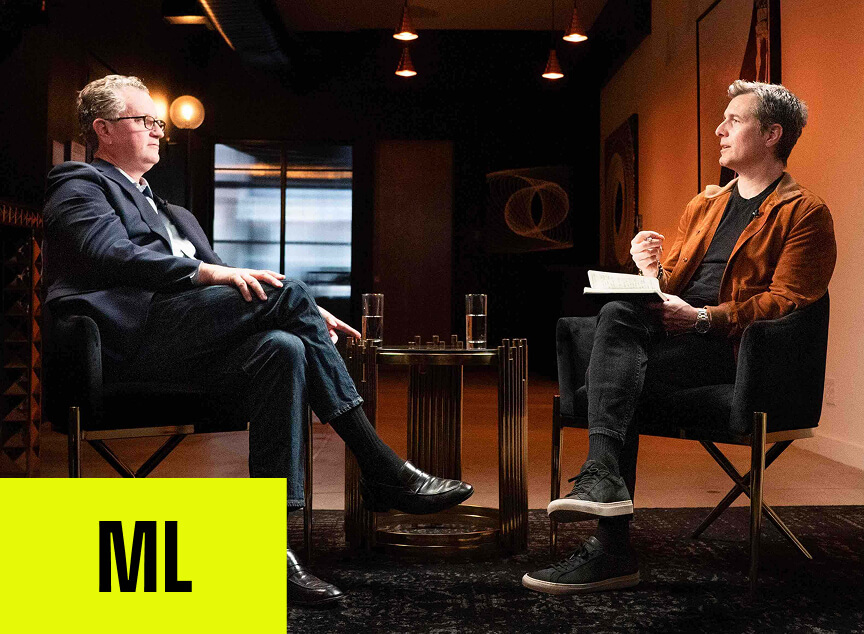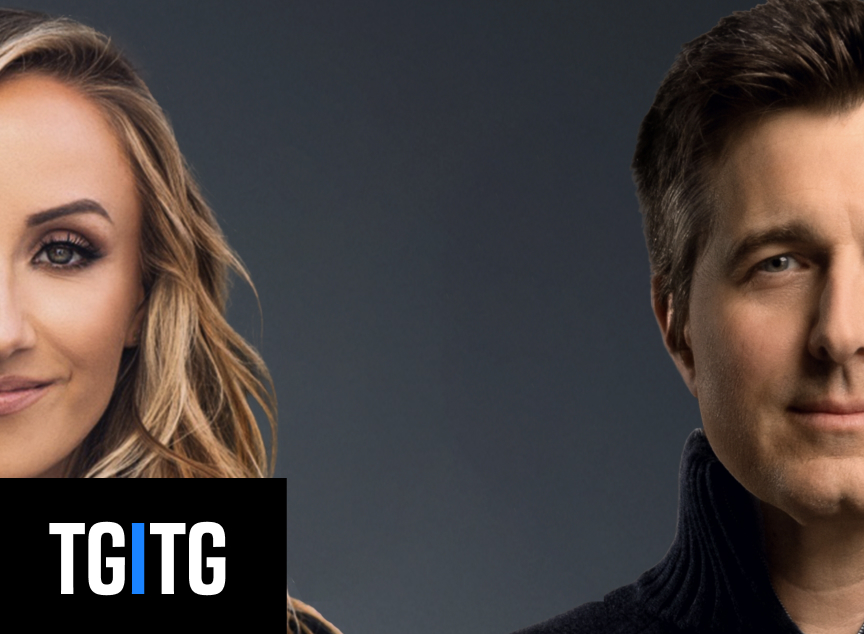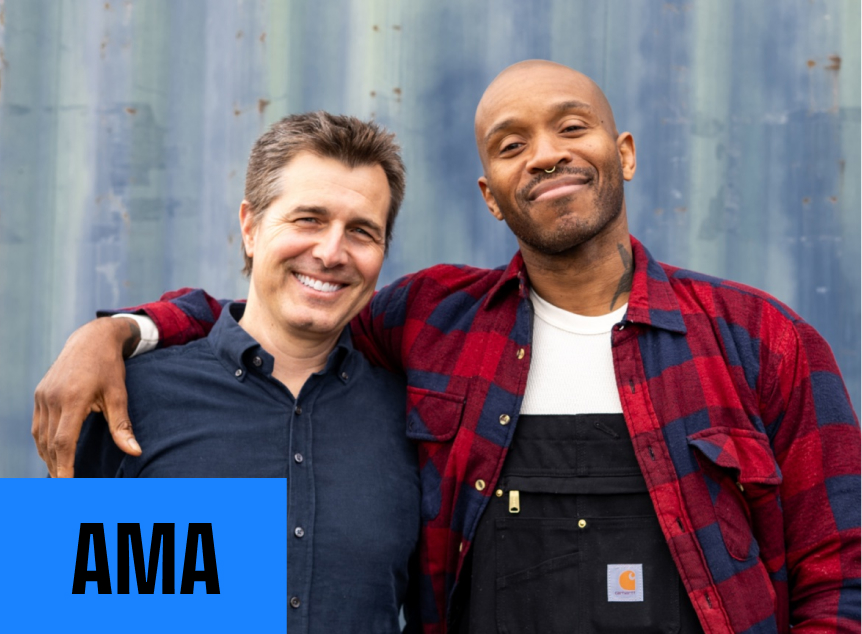This week, we’re really excited to share another installment of our Ask Me Anything series. In this episode, we cover confidence, anxiety, resilience, self-talk, the art of feedback, and much more.
For this AMA, we brought in a friend of Finding Mastery’s to help facilitate the conversation — O’Neil Cespedes. O’Neil is an actor, an improv artist, a former member of the Groundlings Sunday Company, and he’s got an epic new podcast called 3 Black Guys on a Couch.
O’Neil brings a fresh perspective and a ton of energy to this conversation – we had a blast answering your questions together.
I’m super grateful for our community and the opportunity to talk through some of the topics you all are wrestling with. As always, feel free to respond to this email with feedback or any questions you may have for future AMAs.
Keep carving your unique path.
“The relationship you have with yourself sits right at the center of all your other relationships.”
In This Episode:
Steps to building resilience
You need to be able to go through and experience hard things. And there’s three very specific ways that we think about it. If you go through a hard experience, there are three Cs, we’ll keep it that way. And you stay committed to your purpose in life, and if you don’t have that, you stay committed to see the hard thing through. Okay? The first C is commitment. The second is that you’ve reframed it, like, “Okay, this is a challenge. This is an opportunity for me to see what I have, just be able to rise to this challenge because my purpose matters.” So it’s commitment, challenge, and then the third C is about control, controlling what you can control.
Self-talk and confidence
The best in the world, gold medals around their neck… and yet they go onto the arena and they don’t have confidence. They’re struggling a little bit. They’ve got some nervousness or some anxiousness. Why? You’re the best in the world. Why would that be? So all the body of work is in place. The preparation is on point. The reason the last piece of it is self-talk. So you need great preparation and then need to have a command of how you speak to yourself, about yourself and about the challenge. And if you can own that piece, and be great, and be disciplined and be awesome there, it’s a skill that you can develop. Now you are working from the inside out in a very powerful way.
What about, “Fake it ‘til you make it?”
Let’s talk about that self talk. It needs to be credible. You have to earn what you’re saying to yourself. And so when you are doing this inventory about how you want to speak to yourself, if it’s not based in something, we’re out in la la land, it’s like, “It’s not real. You can’t fake it.” Fake it till you make it is a problem. That is not a strategy.
“Be here now” is easy when it’s easy
Be here right now. That’s a skill that you can also develop. It’s really easy to be here now in a calm environment, in an environment that is slightly stimulating. Or it’s easy to be here now when the environment is so dangerous that your life depends on it. But it is hard to be here now in boring environments. It is hard to be here now when there’s moderate stress online because it kicks up different parts of our brain. And our brain’s design is survival, and deep focus is part of survival.
What happens when we aren’t present?
When it’s just moderately stressful, you can focus on a lot of different things and not necessarily the unfolding present moment, because you have the luxury to think about, “Well, what might he think of me or she think of me?” That’s a luxury. That’s a modern day luxury right now that many of us face. The fear of people’s opinions is one of the greatest constrictors of human potential. And if we don’t counter rotate to train how to be here now, we will fall prey to exactly the brain’s dictum, is just, “Figure out survival.” And one of the great threats are people’s opinions of us.
Cell phones and notifications pulling us away
You’ve got your brain, and I have my brain, and [app developers] have a team of 1,000. They’re way ahead. They have figured out how to give us little hits of dopamine, which, a la, is like little hits of cocaine. And it’s a very addicting substance. And so each time we’re flicking, we’re getting a little hit of reward. And so there’s a cycle in here that feels just like a drug user’s cycle. And so they’re winning. They are winning the battle, the war, if you will, for attention. And again, if we go back to this thought that the present moment is what allows you to reveal your truest potential, your high performance, it allows you to express the wisdom that you hold within. And if you’re pulled out by what is happening maybe later on the phone, or you’re scrolling on something that’s rewarding you for not being fully present with the thing that matters most, it’s a compromise.
Coming back from a poor performance
What does poor performance mean? It’s contextual. And my first response there is I tend to use performance or information as that, as, “Okay, this is information that’s going to help me grow.” And so I don’t get caught in good and bad. That dichotomy is actually problematic. There’s a value attached to it. So poor is bad. And I get the casualness of like, “That was not good.” Or, “That was a poor performance.” But if we can be great researchers and we can research and use the information that’s coming in about how we can grow and get better, now, we’re constantly on our front foot and we’re not letting, oh, I don’t know, the social part of a poor performance getting in the way, the emotional part of a poor performance getting in the way. I’m not saying you don’t feel it, definitely feel it, but use your experience as a tuning fork and as a guide for how to grow.
Have a short memory (O’Neil)
Traditionally, I’d tell her to have a short memory. “Hey, you just have to train yourself to have a short memory and believe that you’re here for a reason. First and foremost, you’re part of a small percentage of people that are performing at this level, because there’s a lot of people that want to be great athletes. So you’ve already beat 90% of the people if you’re performing on a collegiate or a professional level. So boom, you already deserve your place. You’ve earned it. So now that you’ve earned this place and you know that you should be here, you just got to have a short memory.”
The central governor of our mind
The central governor was this physiological way to understand capacity. And the idea was that our brains have a governor that says, “To prevent us from exploding, to prevent us from overheating from too much strain, to prevent us from blowing out our system. There’s lots of ways you can think about it, but there’s this governor that says, ‘Oh, no, you can’t go further because we need to take care of ourself.'” And so the central governor is a limiter, and lactic acid is one example of part of that process. So when you reach that threshold where the governor is saying, “This is where you need to stop.” He’s suggesting that you can change that relationship by knowing that you’ve got more in the tank. Your brain is telling you, “You’ve reached a threshold for survival, that I want to make sure you don’t go further, because I don’t know what the future is. So I need to hold on to the resources that are in the backlog.”
Be great, to be great for others
The responsibility is for you to be able to take care of yourself in an incredible way, where you can be fully present so you can be in the presence of somebody else’s, maybe suffering, or pain, or excitement, or challenge. So your responsibility is for you to be great so that you can be there for other people. And so that’s how I think about it. It’s like you are the pebble in the pond, and if you want to create great ripples, be a heavy pebble. Build something internally so that you can be there and create waves in the places you go.
What you water, will grow
Emotions and core principles that we have are a bit like seeds and we all have all of the seeds available to us. You and I both have the seeds of jealousy, and anger, and love, and compassion, and we have all the seeds, we have all of the core material for that. And so what we think about is like watering that seed. What we attend to in our mind and in our behaviors is watering that seed. Some of these seeds turn into weeds and they just really start to take over. Jealousy is one of those that is a bit more like a weed.
No hacks
You don’t want your surgeon to be a hack. You don’t want your tattoo artist to be a hack. I do not want my psychologist to be a hack. And so I don’t want my friend to be a hack. And those folks that are investing in just “life hacks”, and are missing this really deep, foundational commitment on relationship with self, and others, and nature, and experience in of itself are missing one of the largest boulders to get in the container. And so that your relationship with yourself is right at the center of it.



